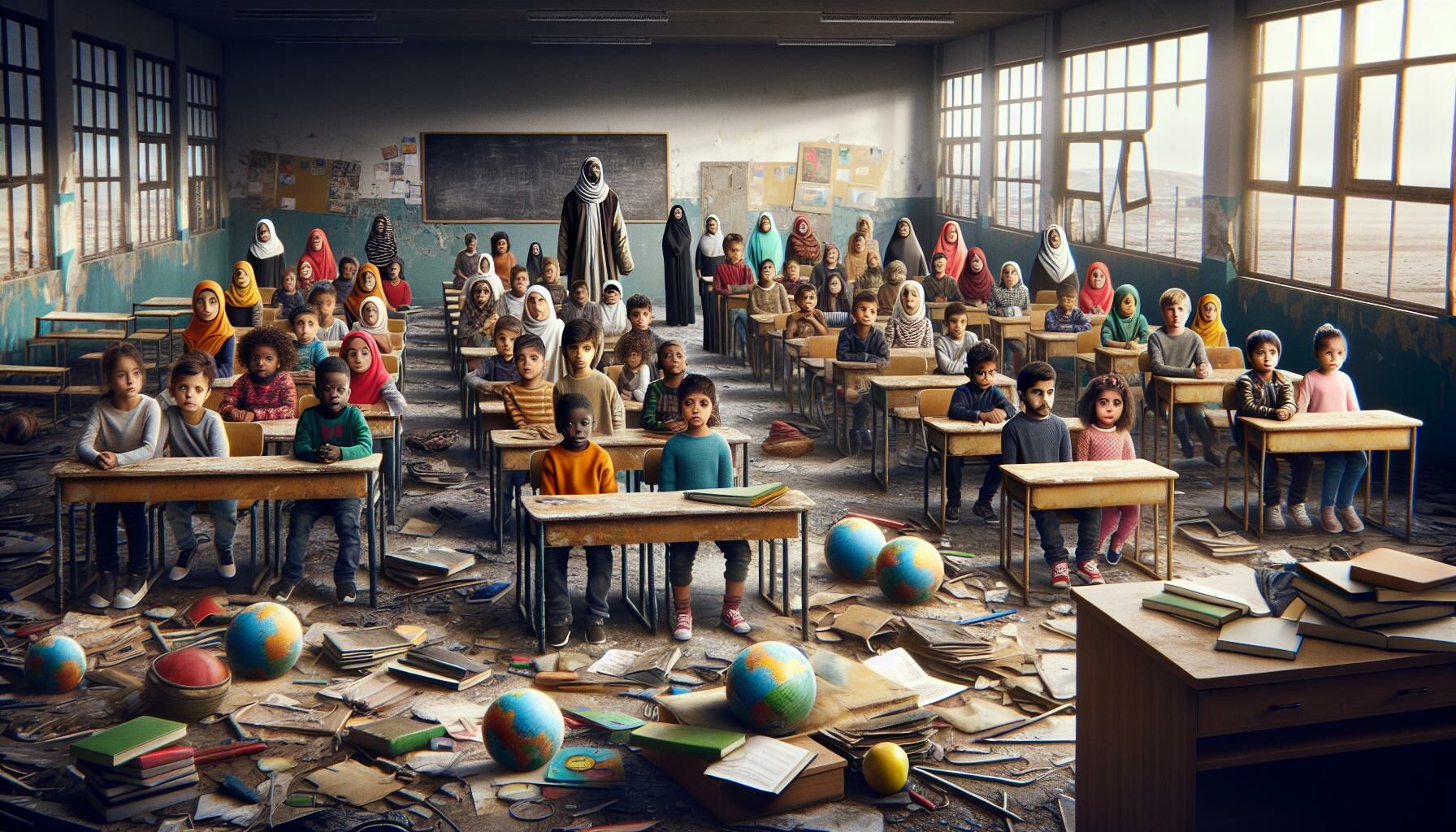Funding shortages hinder education for refugee children

Funding shortages are severely hindering the education of refugee children, leaving many without the resources they desperately need. Last year, the “Building Tomorrow” programme reached over 13,500 people, offering education and livelihood support to Syrians under temporary protection in southeast Türkiye. The programme provided Turkish language classes to 12,000 children aged 6-13 at public education centres, aiming to break down language barriers that impede progress.
However, the lack of consistent funding threatens these vital initiatives. Teachers like Adnan, who fled Syria and now educates children in Türkiye, rely on these programmes not just for their salaries but also for essential teaching materials and infrastructure. Without adequate financial support, the future of thousands of refugee children hangs in the balance, risking a generation lost to circumstances beyond their control.
The impact of funding shortages on refugee education
Critical challenges in host countries
Host countries face numerous challenges in educating refugee children. Limited financial resources strain educational infrastructure. Schools lack essential supplies, adequate facilities, and trained staff. Insufficient funding translates to overcrowded classrooms and reduced educational quality. Despite efforts from international organisations, resource gaps persist. A report indicates that over 13500 people benefited from education support in southeast Türkiye through the “Building Tomorrow” programme. However, such initiatives are under constant threat due to funding shortages. Language barriers further complicate integration, with inadequate language classes hampering progress.

Long-Term implications for refugee children
Funding shortages have long-term implications for refugee children. Education disruption contributes to a lost generation, limiting future opportunities. Without consistent support, dropout rates increase, and academic performance declines. Mustafa’s story exemplifies these challenges. Without family support, children often work long hours, affecting their school attendance. Teacher Adnan once forced to flee Syria, now depends on such programmes for resources and salaries. Funding ensures sustainable educational environments, critical for child development. Without it, psychological stress and societal marginalisation escalate. Future stability and social cohesion depend on educating these vulnerable populations.
Barriers to education for refugee children
Access issues in various regions
Refugee children in countries like Türkiye and Lebanon face significant access challenges. Schools often lack proper infrastructure and teaching materials. Overcrowded classrooms are common, reducing individual attention to students (Millán et al., 2019). High student-teacher ratios lessen the effectiveness of instruction. Female teachers are scarce, which affects girls’ attendance and participation. Language barriers persist, complicating instruction, as most refugee children do not speak the host country’s language fluently (Burde et al., 2015). Discrimination exacerbates these problems, making it difficult for children to integrate into local schools.
Quality of education and resource availability
Quality education for refugee children is hampered by inadequate resources. Many schools in refugee-hosting areas lack basic supplies like textbooks and classrooms are often dilapidated. Teachers usually aren’t trained to deal with refugee-specific needs, impacting their ability to provide effective education (Dryden-Peterson, 2011). The high turnover of teachers further destabilises the educational environment. Financial constraints force many children to work, limiting their time for studies. Initiatives like the “Building Tomorrow” programme aim to mitigate these issues, but funding shortages threaten their sustainability, increasing dropout rates and affecting long-term academic performance.
Strategic responses to overcome educational challenges
Improving global support and solidarity
Enhancing international cooperation can mitigate educational disparities for refugee children. Countries and global organisations must allocate more funds and resources to support educational initiatives. Joint efforts can help in sharing best practices and creating more effective programs. For example, the European Commission’s Children of Peace initiative funds educational materials and infrastructure repairs, aiding teachers like Adnan. Sustained international funding ensures the longevity and impact of these programs.
Collaborative frameworks, such as public-private partnerships, can leverage expertise from various sectors. This integration facilitates comprehensive support, covering aspects from psychosocial support to vocational training. By pooling resources, these partnerships can offer holistic education solutions. Increased global advocacy also plays a crucial role. Raising awareness about the plight of refugee children prompts action and attracts funding.

Innovative solutions in resource allocation
Effective utilisation of available resources can enhance educational outcomes. Adaptive learning technologies, like Cerego, provide tailored educational content. These technologies adjust to individual learning paces, ensuring students grasp foundational concepts. In overcrowded classrooms, such tools can offer personalised learning experiences, alleviating the strain on teachers – especially when language barriers exist.
Community-based approaches can maximise resource use. Engaging local communities in the educational process fosters a supportive learning environment. For example, the Building Tomorrow program uses community volunteers to assist with teaching and outreach efforts. Resource-sharing platforms enable efficient distribution of educational materials, ensuring all students have access to necessary resources.
Investing in teacher training improves educational quality. Providing teachers with adequate training ensures they are equipped to handle diverse classrooms and address the specific needs of refugee children. Trauma-informed training helps teachers manage behavioural issues, reducing dropout rates. By focusing on resource allocation and community involvement, innovative solutions can substantially improve education for refugee children.
Latest Thailand News
Follow The Thaiger on Google News:


























